Big coffee gathers, talk about the overall development of breast cancer in common | 2022 Roche Tumor Summit Forum-Breast Cancer Specialized Excellent Content Broadcast
Author:Cancer Channel of the Medical Time:2022.07.10
*For medical professionals for reading reference

Pioneer · Creative Bank | 2022 Roche Tumor Summit Forum looks forward to joining hands with you, with the power of premium, the future of the creation of the bank.
In order to promote the academic exchanges of tumor, cutting -edge scientific research and innovation in common talks, and sharing the latest clinical experience, in 2002, the first Roche Tumor Summit Forum was held in China, and there have been 20 years of tradition. On July 9, 2022, the latest Tumor Summit Forum of Roche was grandly held to implement the concept of "the need for patients first", focusing on the theme of "see -out and innovation", focusing on the latest clinical applications and research in the six major fields progress.
Among them, Professor Shao Zhimin, a close to the Cancer Hospital affiliated to Fudan University, Professor Jiang Zefei of the General Hospital of the PLA, and Professor Wu Yan of Wu Yan at the Fudan University Cancer Hospital as the chairman of the conference and made a wonderful speech. Dozens of influential experts and scholars in the field of breast cancer in domestic and foreign breast cancer participated together to track the overall development of breast cancer, explore the hot spots and treatment challenges in the field, and look forward to the future pattern of breast cancer, which brings a wonderful medical worker to the majority of medical workers Expert academic feast.
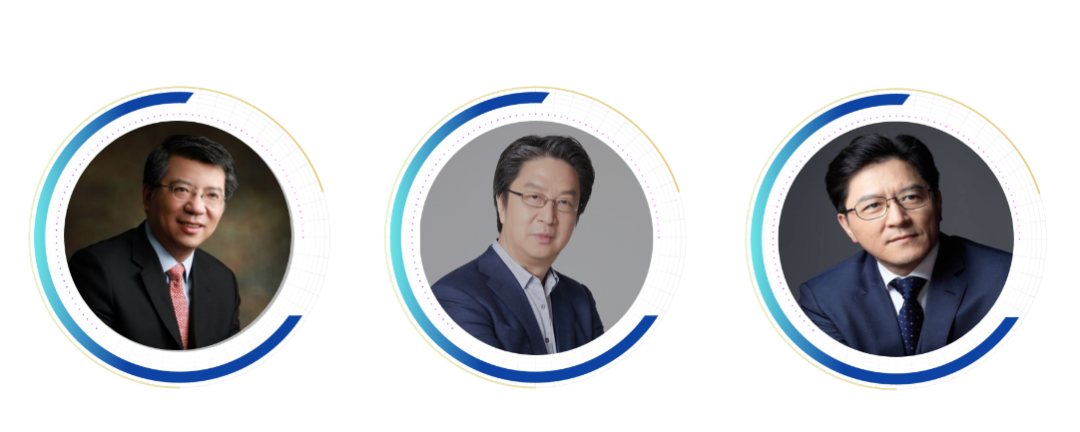
Professor Shao Zhimin, Professor Jiang Zefei, Professor Wu Yan
Chapter 1: Walking with Her
This session was chaired by Professor Wu Ye of the Cancer Hospital of Fudan University and Professor Wang Haibo, Affiliated Hospital of Qingdao University as the meeting. Professor Yin Yongmei of Jiangsu Provincial People's Hospital as a lecturer shared the theme of "HER2 -positive breast cancer: opportunity and challenge". She pointed out that a variety of new anti -HER2 therapy drugs have been released one after another, which has changed the prognosis of HER2 positive early breast cancer and the survival ending of advanced breast cancer. Demand.
①在药物安全性和患者生活质量的平衡方面,包括低复发风险患者或可进行降阶治疗、探索去蒽环方案避免药物的长期严重毒性、探索生物标志物筛选出新辅助降阶人群,以及Change the quality of patients while ensuring the efficacy while ensuring the efficacy.
② For the best treatment order of advanced anti -HER2 drugs, the current Qupa dual -target combined chemotherapy is still a first -line standard treatment option. Cleopatra studies. The 8 -year PFS rate of Quapa dual -target is still 16%. With more anti -HER2 drugs, HER2 positive advanced breast cancer backline therapy is worthy of attention.
③ The heterogeneity and drug resistance of HER -positive breast cancer needs to be paid attention to, and antibody coupling drugs (ADC) may become an important means to solve the heterogeneity or drug resistance of breast cancer.
④ HER2 -positive breast cancer brain metastasis (CNS) has a high incidence and is related to poor prognosis. How to identify patients with brain metastases and improve the prognosis of patients with brain metastases is currently facing clinical problems. At present, the guidelines recommend that breast cancer brain metastasis is mainly local treatment and systematic treatment, but systematic treatment has played an important role in controlling systemic diseases. Among them, small molecular tyrosine kinase inhibitors (TKI) and macromolecular ADC drugs have significant benefits in the treatment of brain metastases.
⑤ There is a cross between different signal pathways. Observing biomarkers and pathways other than HER2 (such as HR, PI3K, PD-L1) provide opportunities for more comprehensive targeted therapy. In the future, HER2 positive breast cancer patients will be more detailed The crowd is further enhanced the efficacy and overcoming drug resistance through anti -HER2 targeted treatment strategies. At present, the new targeting drug combined anti -HER2 targeted drugs are in progress, or the goals of patients can survive longer and finally achieve tumor cure.
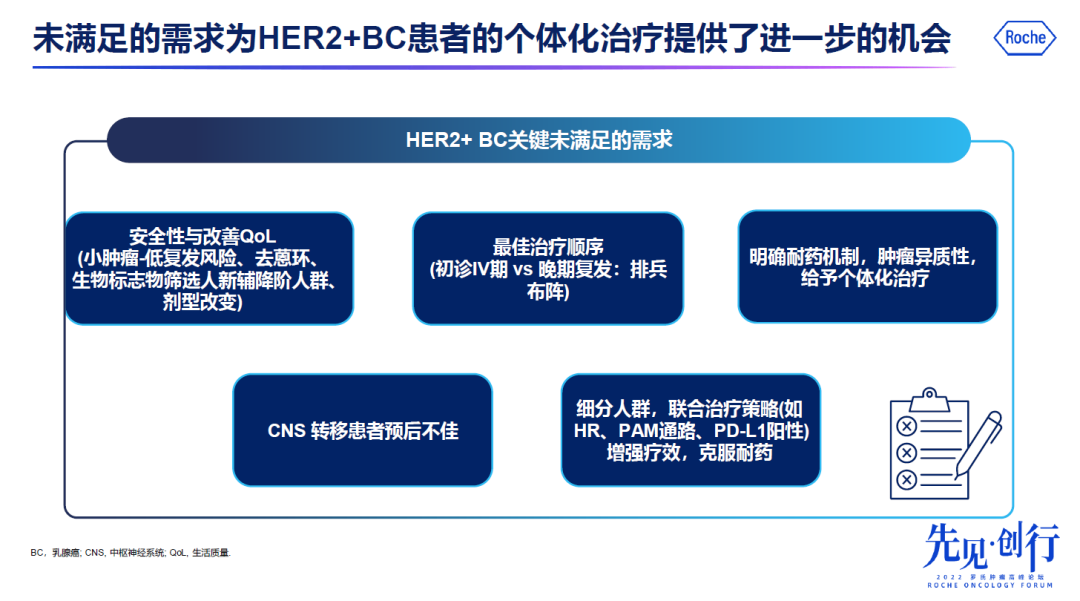
Professor Yin Yongmei reported
The theme shared by Professor Lee Soo Soo Chin of the National University of Singapore is "Improving patients' benefits: New Double -target subcutaneous preparations leading HER2 -positive breast cancer targeted therapy model". " Inhibitory HER2 pathway is the main strategy for treating HER2 -positive breast cancer. Among them, Qu Pa dual -target plays an important role in the inhibitory of HER2 channels. Whether it is neo -assistant, auxiliary or advanced lines, it is a standard treatment option. However, its intravenous infusion method will affect the quality of life of the patient to a certain extent. At this stage, it has developed a fixed -dose subcutaneous preparation of the Quapa dual -target. Its pharmacokinetics and clinical efficacy are similar to the traditional venous injection preparation.
For patients, there is no need for intravenous intubation, which is shorter and more observed, and the satisfaction is increased. Just for the nurse, the fixed dose is not only simple to prepare, but also reduces the risk of dose calculation or incorrect administration. The nursing time is shortened and the burden is reduced. In the environment of the epidemic, reducing the agglomeration of patients and reducing the risk of virus infection, the subcutaneous preparation is particularly important. In addition, Professor Le Soo Chin takes the NCIS-ON-The-GO operating mode as an example. It introduces patients who receive low risk and can complete cancer treatment (such as subcutaneous injection) in the hospital in the hospital in terms of cancer treatment. The transfer to the community to benefit all the stakeholders in the healthcare ecosystem, which represents a win -win situation.
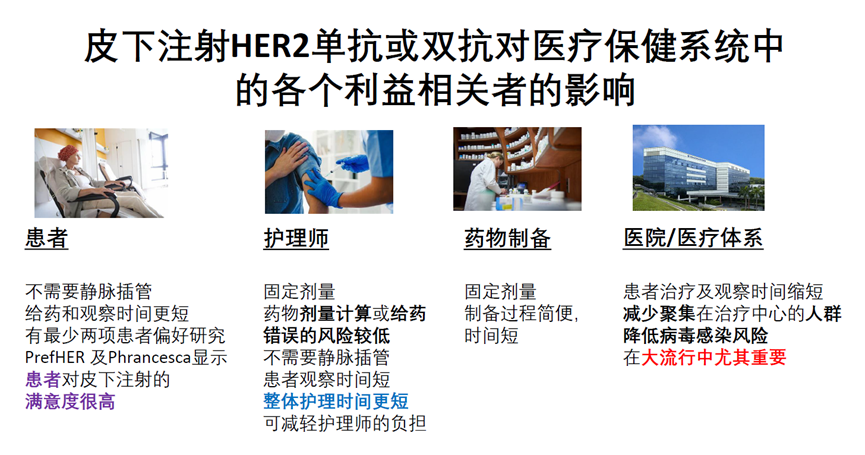
Professor Lee Soo Soo Chin report
Subsequently, under the auspices of Professor Wang Haibo, Affiliated Hospital of Qingdao University, Professor Ge Rui, East China Hospital Affiliated to Fudan University, Professor Lee Soo Soo Chin, Singapore National Cancer Center, Professor Li Nanlin, Xijing Hospital of Air Force Military Medical University, Professor Hu Hong from Shenzhen People's Hospital around HER2 early Breast cancer (new) auxiliary degradation treatment, HER2 -positive advanced breast cancer future anti -HER2 combined treatment strategy, the advantages of Qu Pa dual -target subcutaneous preparations and how to combine Singapore's flexible treatment experience of how to maximize the dual -target subcutaneous preparation in China. Four issues have been discussed. Chapter 2: The Sea of Stars and the Sea will be sail again
This session was chaired by Professor Wang Shusen of Sun Yat -sen University Tumor Prevention and Treatment Center and Professor Chen Yixing of the Second Affiliated Hospital of Zhejiang University Medical College. He was first shared by Professor Song Chuangui of Xiehe Hospital Affiliated to Fujian Medical University and shared the "New Thinking of HR Positive Breast Cancer Treatment". In terms of HR -positive early breast cancer, neooded endocrine therapy (NET) and Neo -Assisting Chemotherapy (NCT) have similar curative effects, but the toxicity is lower. Net may be an alternative treatment solution for NCT. Although the PCR rate is not high as a whole, more and more alternative endpoints (PCR, ESDR, PEPI 0, Ki-67 change, gene spectrum, etc.) are used in the study of HR positive new assisted endocrine therapy, but the most suitable alternative endpoint There is still no conclusion. At present, more guidelines at home and abroad are more recommended for postmenopausal patients for NET. We need to receive clinical and biomarkers and appropriate endpoints, and more accurately recognize people to receive new assisted therapy beneficiaries.
In the selection of Net schemes, classic studies have shown that after menopause, different aromatase inhibitors (AI), AI and Fluvis groups are similar, and the new generation of oral selected estrogen receptor degradation (SERD ) GiredESTRANT ± CDK4/6 inhibitors are used for the initial results of new assisted therapy, which is better than AI ± CDK4/6 inhibitors, which is fully reflected in the Coopera study. For HR -positive early breast cancer, auxiliary layered therapy can be based on clinical pathological factors and multi -gene array screening risks. Low -risk and part of the middle -critical patients can exempt the auxiliary chemotherapy. The exploration of basic enhancement in the mid-to-high risk, such as extending ET to 7-8 years, increased ovarian function suppression (OFS) before menopause, and stronger endocrine therapy drugs such as the exploration of new generation of oral SERD drugs. Patients with high recurrence risks and even higher recurrence risks need to be upgraded and enhanced, such as combined with CDK4/6 inhibitors.
Professor Song Chuangui reported
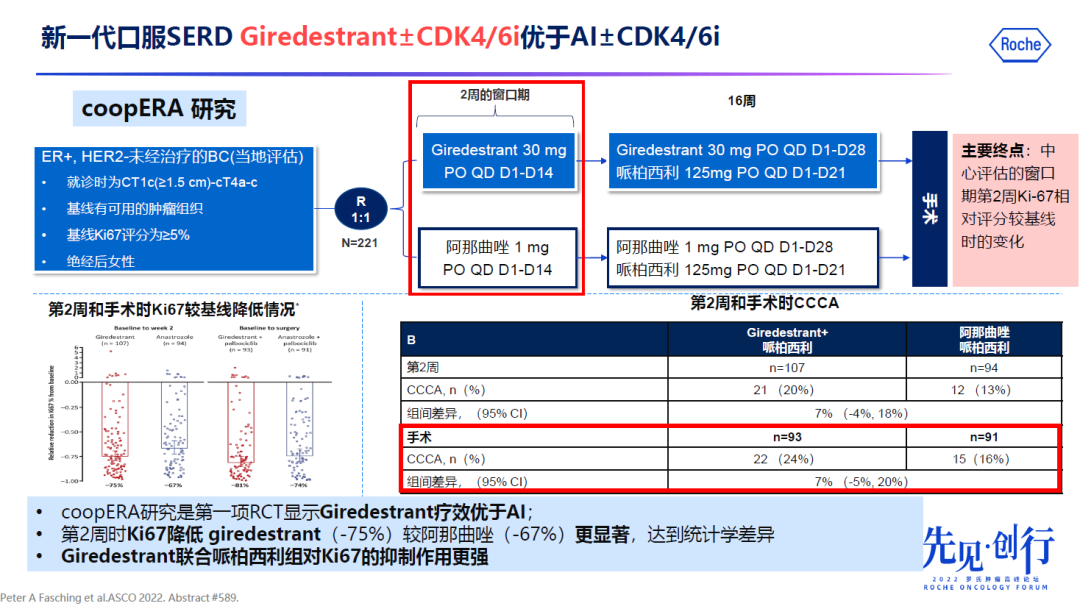
Another speaker in this chapter shared Professor Yang Jin, the First Affiliated Hospital of Xi'an Jiaotong University, shared the "HR -positive advanced breast cancer treatment hotspot and outlook". The first-line treatment structure of HR positive breast cancer is changing, the proportion of endocrine therapy is gradually rising, and with the rapid development of targeted drugs, the current HR+/HER2-metastatic breast cancer's endocrine therapy hotspot and progress are based on CDK4/6 inhibitors. Expand it, including OS benefits, drug resistance mechanisms, follow -up treatment strategies, etc. As a joint partner of the CDK4/6 inhibitor, the new SERD first exposure is sharp. For patients with the failure of ESR1 mutations, CDK4/6 inhibitors, and fluoros group treatment, it is expected to be the best endocrine therapy drug.
Overall, in the era of post -CDK4/6 inhibitors, for patients with sensitive endocrine therapy, CDK4/6 inhibitors are the first choice. Subsequent treatment may include CDK4/6 inhibitors cross -line use, HDAC inhibitors, MTOR inhibitors, PI3K PI3K, PI3K Inhibitors, ADC drugs, etc. Although the current development of ADC drugs is very hot, it only provides new choices for HR positive/HER2 negative breast cancer backline, and cannot completely break the endocrine therapy pattern; and endocrine therapy resistance to resistance drugs Patients also need to explore Biomarker to formulate appropriate treatment plans.
Professor Yang Jin reported
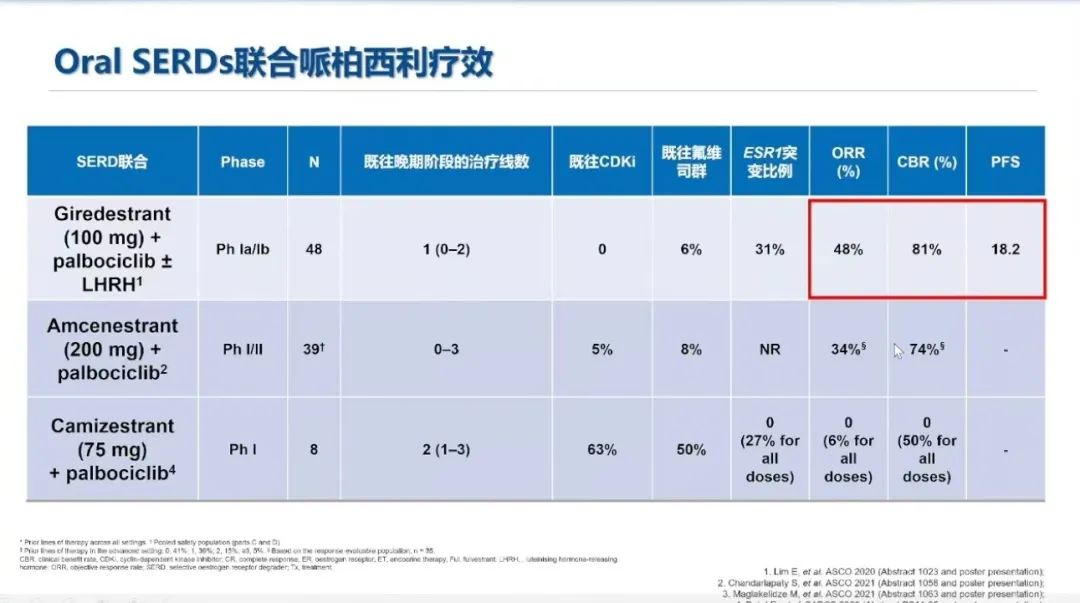
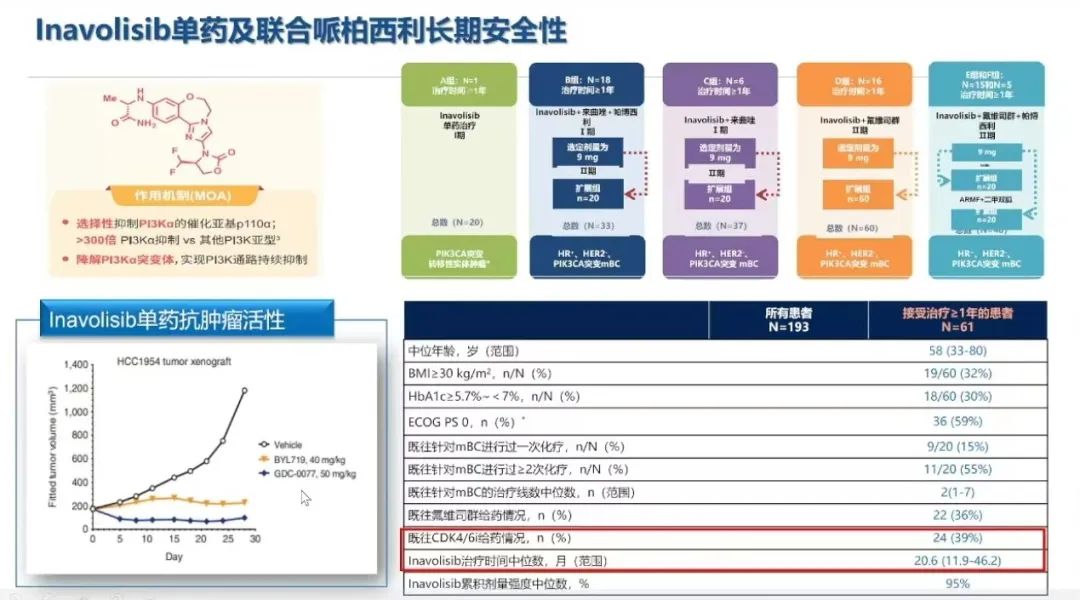
After the wonderful speech, under the auspices of Professor Chen Yiding, the Second Affiliated Hospital of Zhejiang University, Professor Hao Chunfang, Tianjin Medical University Cancer Hospital, and Professor Yang Jin, First Affiliated Hospital of Xi'an Jiaotong University, were evaluated by HR positive breast cancer new assisted therapy and efficacy evaluation The endpoint selection and auxiliary treatment pattern changes, and the new oral SERD and PI3K inhibitors will start a warm discussion in the application prospects of HR -positive breast cancer in the future.
Chapter III: Precision Taoism
In this session, under the auspices of Professor Zhang Qingyuan affiliated to Harbin Medical University, Professor Steve Chui, one of the heads of global drug research and development of Roche, shared the wonderful theme "Triple Negative Breast Canceporm where we are and the line of sign". With the in -depth understanding of the three -negative breast cancer (TNBC) cancer biology, its treatment methods are also continuously enriched, and new treatment methods other than chemotherapy are developed.
In recent years, immunotherapy has achieved excellent efficacy in TNBC. The IMPASSION130 is the first research in Ayidzab in the three-negative breast cancer in PD-L1 to obtain a significant research on PFS and OS benefits to benefit The adaptation of its combination of albumin paclitaxel was fully approved in 95 countries such as the European Union. In addition, Adi Zhuabi has conducted a number of explorations in the early TNBC. We hope to answer the role of immunotherapy in the early TNBC Shinji or auxiliary stage through different studies at different treatments. In the future, Roche will continue to explore immunotherapy -based joint treatment, such as a joint ATR inhibitor. We hope to strengthen cooperation with patients, practicing clinicians, clinical trials, scientists and global health departments to improve the treatment ending of all TNBC patients. Professor Steve Chui report
Subsequently, Professor Zhang Jian of the Cancer Hospital of Fudan University shared the hot topic of "precision treatment strategy of triple -negative breast cancer". TNBC has a strong heterogeneity, and its internal and tumor microenvital environment has complex biological characteristics. TNBC's treatment strategy has gradually evolved in categoria and accurate treatment. At present, immunochemical chemotherapy has performed well in the field of TNBC and early neo -assisted and auxiliary therapy. Not only that, the metastatic breast cancer patients with mutations of embryo BRCA1/2 can benefit from the treatment of PARP inhibitors. TNBC's treatment exploration based on the PI3K pathway treatment also shows great potential.
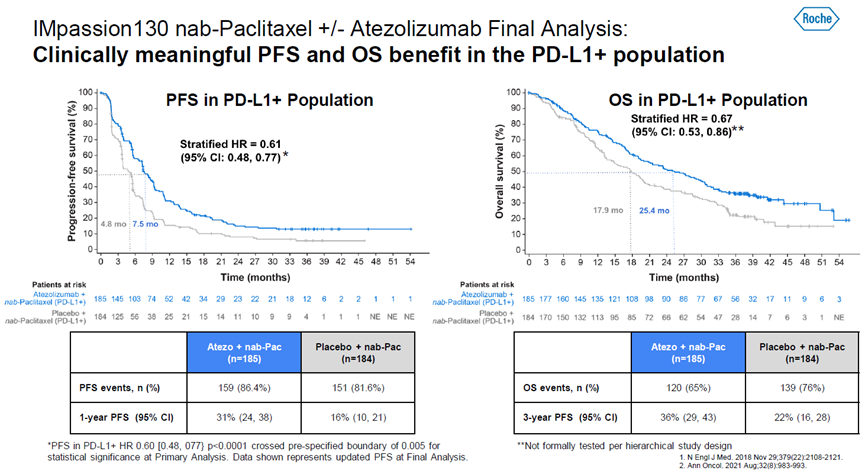
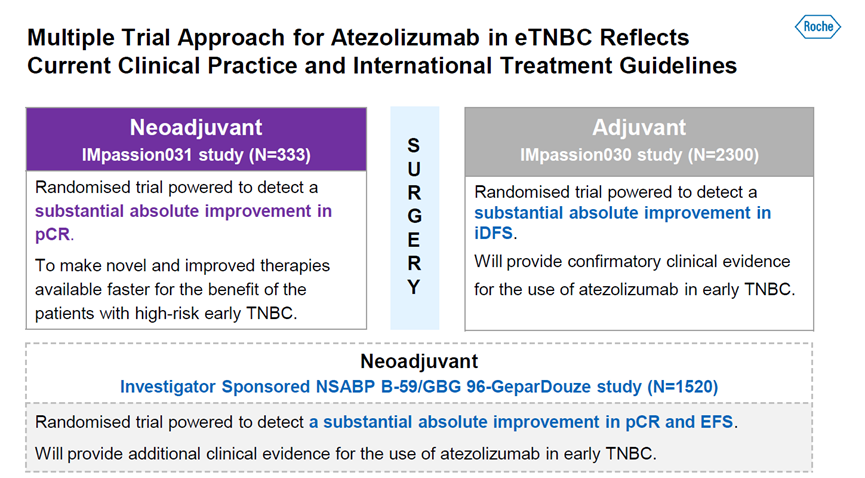
In addition, the rapid development of ADC drugs in the past 10 years has effectively extended the total survival of patients in the application of metastatic TNBC. Given that the molecular characteristics inside the tumor are closely related to the tumor immune microe environment, the treatment of TNBC is transformed from a tumor -based internal characteristics of the tumor. Antiovascular production drugs, oxidation trimamine (TMAO), MEK inhibitors, PARP inhibitors, and ADC drugs are also emerging in related explorations with immunotherapy.
In addition, because the CTDNA test provides accurate and fast genetic types, it can choose mutant -oriented treatment for patients with breast cancer. It has sufficient clinical effectiveness. It is necessary to explore the precise treatment strategies under CTDNA dynamic monitoring guidance. TNBC is also constantly exploring potential treatment strategies, and the future pattern is worth looking forward to.
Professor Zhang Jian report
Summarize
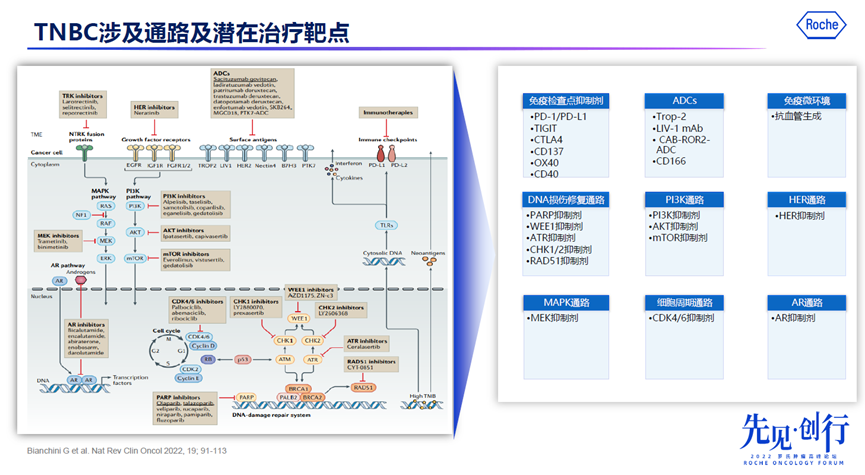
The conference ended in a strong academic atmosphere. Professor Zhang Qingyuan mentioned in the summary that the current drug selection in the field of breast cancer is very rich, including HER2 positive, HR positive/HER2 negative, and TNBC breast cancer treatment. Actively explore and provide a series of anti -tumor drugs with high therapeutic and application prospects, which has made great contributions to the benefits of the overall survival of breast cancer. With the deepening of research in the future, I hope that various new drugs can bring more surprises, thereby benefiting more patients with breast cancer.
Watch the full meeting back, please scan the QR code above
*This article is only used to provide scientific information to medical people, and does not represent the viewpoint of this platform



- END -
This kind of "fatal crisis" is not cared for by the bee biting man!
Wuhan Evening News July 8 (Intern reporter Jiang Mengqing Correspondent Hu Meng) Today is the World Allergic Disease Day. Many people think that it is a minor illness, but in severe cases, it can caus
The darker the egg yolk, the more nutritious?Doctor: Most people have eaten the wrong, the truth is ...

Special Author: Liu Pingping | Registered Nutritionist Painter: My Neighbor Totoro...